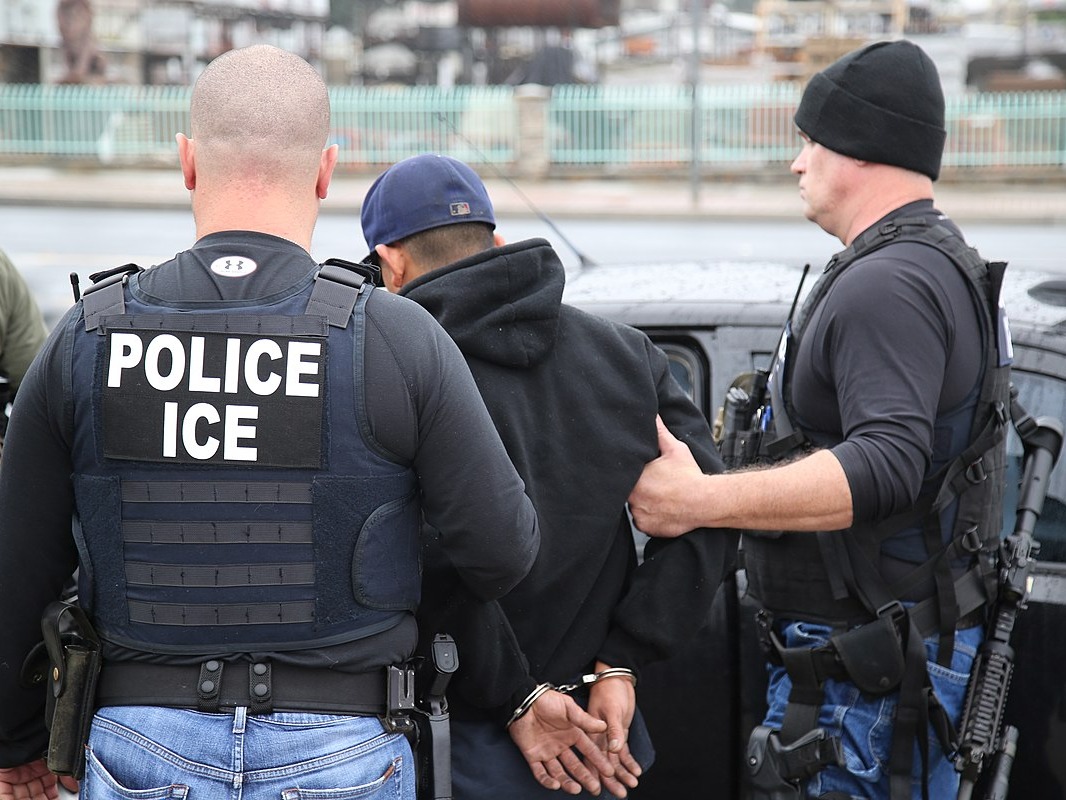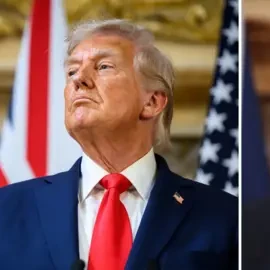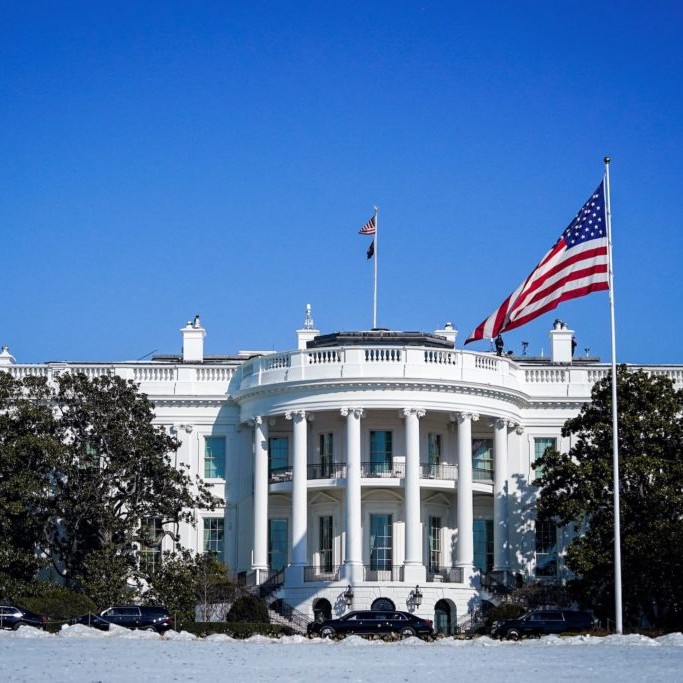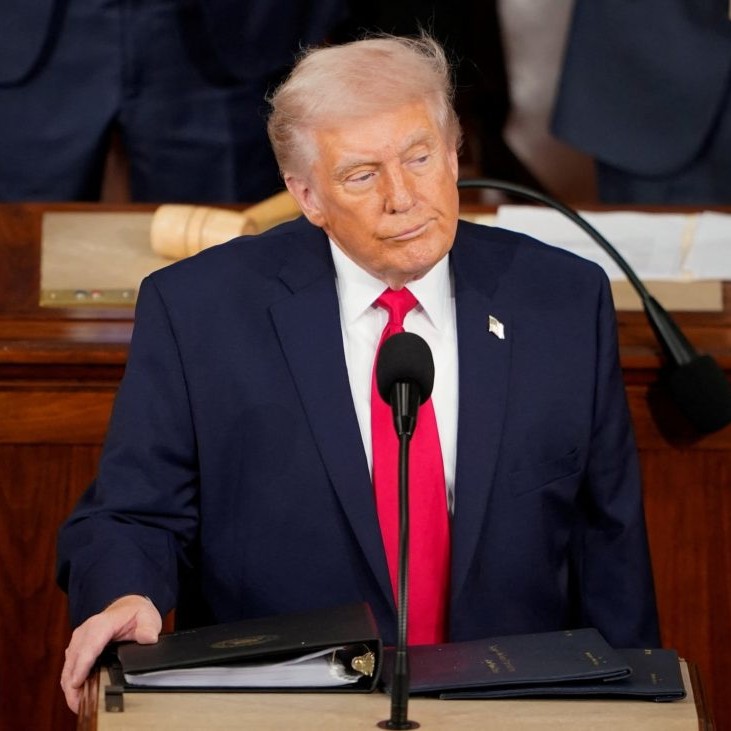
Enforcement and Removal Operations, 2017. Photo courtesy of the U.S. Immigration and Customs Enforcement . Public domain.
The U.S. government is offering unauthorized immigrants $1,000 and a free plane ticket if they agree to pack up and leave the country voluntarily.
That’s not the punchline to a late-night joke. It’s a policy — straight from President Donald Trump’s Department of Homeland Security — unveiled as part of a broader, high-pressure immigration crackdown that’s already sparked multiple court challenges and widespread backlash.
A ‘Dignified’ Exit or a Desperate Pivot?
The self-deportation stipend is being sold by the Trump administration as a pragmatic solution. Officials claim it’s a “dignified,” cost-effective exit strategy — especially compared to the $17,000 price tag tied to each forced removal by ICE agents, according to NPR.
The catch? Participants must use a rebranded government app — formerly used to request asylum — to alert DHS of their intent to leave. If they follow through, they’ll get a stipend, a flight home, and supposedly, a cleaner slate for potential legal return.
Critics say the program signals a sharp turn — from brute-force enforcement to financial persuasion. Some immigration advocates have likened it to a bluff wrapped in a cash incentive, warning that it could exploit desperate individuals with promises that may never materialize.
Behind the Shift: Mounting Legal Pressure
The sudden pivot to carrots comes on the heels of escalating judicial blowback. Federal courts in New York, Texas, and Colorado have slammed the Trump administration’s aggressive use of the Alien Enemies Act — a centuries-old wartime statute — to deport migrants, particularly Venezuelans, without due process.
In some cases, those deported were sent not back to their home countries, but to El Salvador’s CECOT — a maximum-security prison notorious for alleged human rights abuses. More than 200 men were already deported under the policy before it was temporarily halted. According to Politico, the ruling of U.S. District Judge Alvin Hellerstein said in part, “The destination, El Salvador, a country paid to take our aliens, is neither the country from which the aliens came, nor to which they wish to be removed. But they are taken there, and there to remain, indefinitely, in a notoriously evil jail, unable to communicate with counsel, family or friends.”
Those legal rulings have cornered the Trump administration. So now, instead of booting people out by force, they’re trying to get them to walk out — and footing the bill.
Optics of a Payout Amid Crackdowns
Even if the new approach saves money and detention space, it’s creating awkward optics — a government paying undocumented immigrants to leave while championing tough-on-immigration policies on the campaign trail.
To some conservatives, the offer looks like a betrayal. To others, it’s smart economics. To critics, it’s bait.
“They’re clearly out of touch with the reality that immigrant families and communities and individuals face in this country, and why they’re here in the first place,” said Esther Reyes, a strategist with the Protecting Immigrant Families coalition, in an interview with NPR. “A lot of the fear that communities feel has been around for a long time; particularly for people who are here without any kind of legal status, every day is a risk. Unfortunately, folks are used to the threats, whether small or large, that come their way on a regular basis.”
Meanwhile, DHS remains vague on key logistics — including how many migrants have signed up, when the payments are processed, and how many could eventually return legally.
The 10-Year Ban Problem
One of the biggest red flags? The fine print.
Migrants who leave under the program may be barred from reentering the U.S. for up to 10 years if they’ve previously lived in the country unlawfully for over a year — a reality that complicates Trump’s suggestion that those who self-deport might be welcomed back in the future.
Bluff or Blueprint?
The policy has left many wondering if this a sincere policy pivot or just a public relations maneuver meant to soften the administration’s image in a turbulent time?
In the meantime, Trump’s deportation machine continues — more than 100,000 people have been removed since January, including recent mass deportations to Central Asia, some involving individuals with violent criminal histories.
But for those without criminal records — and without options — the $1,000 carrot is the newest twist in a high-stakes immigration chess match.
References: US offers migrants free airline tickets and $1,000 stipend if they self-deport | Trump offers $1,000 incentive to migrants who leave the country voluntarily | Another judge skewers Trump’s use of Alien Enemies Act for deportations to El Salvador | DHS deports 130 illegal migrants back to Central Asia | Trump offers illegal immigrants $1,000 to ‘self-deport’







